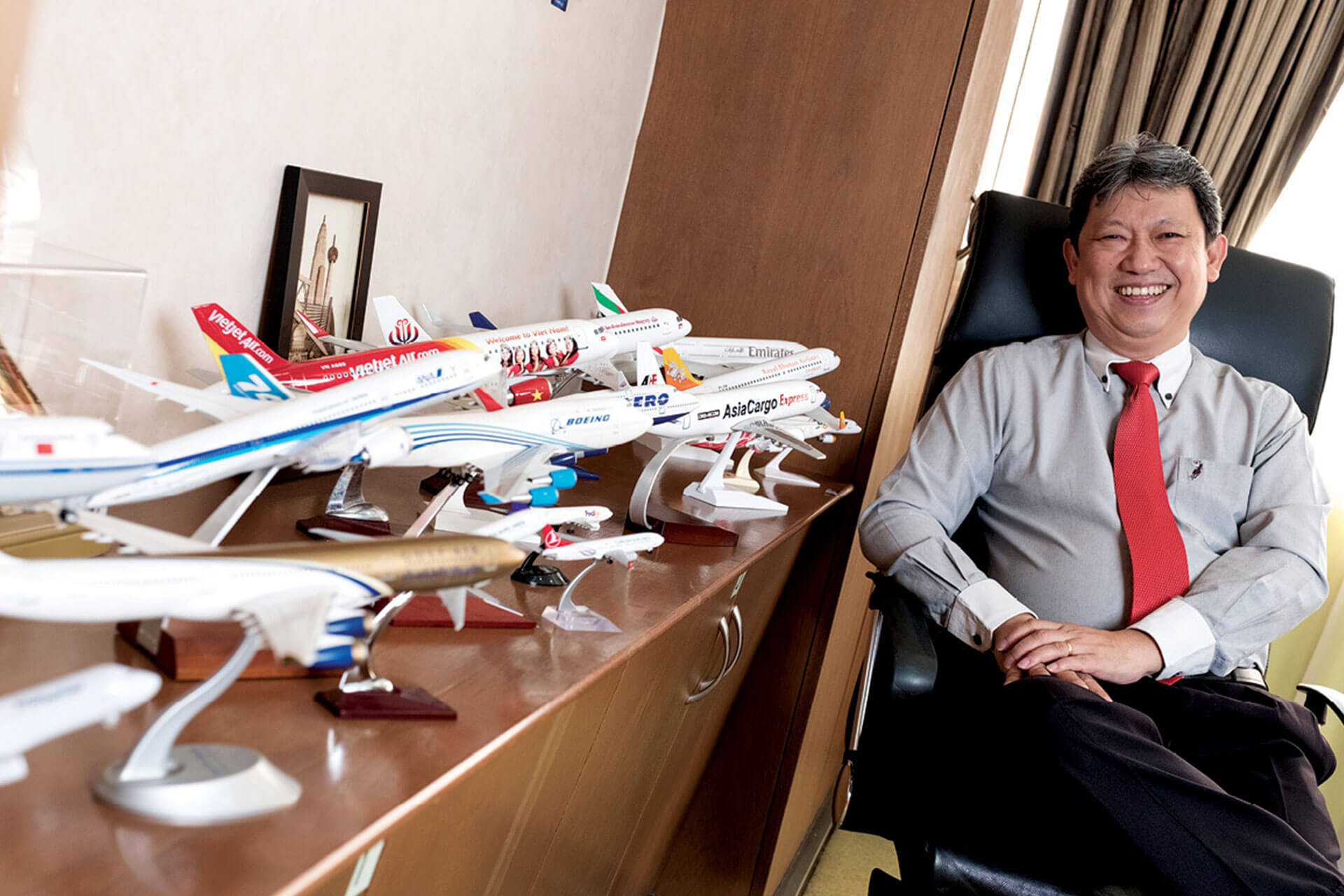Like ground handlers across the world, POS Aviation has moved quickly to navigate the Covid-19 pandemic. Edward Robertson reports
Despite its proximity to the source of the Covid-19 outbreak, China, when Malaysia went into a government-enforced lockdown in March it was already behind countries further afield like Italy in doing so, owing to the virus’ rapid spread around the world.
POS Aviation CEO Woo Kam Weng says the decision to severely limit freedoms in the country came after the World Health Organisation (WHO) officially categorised the outbreak as a global pandemic on 11 March.
He adds this led to further lockdowns in countries across the region, so massively amplifying problems that were already being felt by POS which handles five different operations streams: ground handling, catering, engineering, cargo and e-commerce.
Woo says: “The real impact came in the second half of March. Malaysia locked down on 18 March, India followed, Australia followed and everybody locked down. The second half of March, we really fell off the cliff.”
He adds the financial impact was considerable, with 75 per cent of business lost in the ground handling, catering and engineering divisions “in a matter of two weeks”.
However, Woo says the situation could have been worse had the company not had its remaining two streams to fall back on.
He adds: “Cargo and e-commerce were slightly different. In cargo we only lost 37 per cent (of business) and that was a blessing because we had freighters coming in with a lot of flights taking on Personal Protective Equipment (PPE) to the US and so on.”
Retail therapy
Meanwhile, POS’s e-commerce division, which acts as a distribution hub for three Asian companies including Alibaba subsidiary Lazada, Shopee Singapore and the Thai-owned, Malaysia-based Pomelo in Malaysia, proved to be a vital asset as those in lockdown moved online for much of their shopping.
“That business grew two to three times so that softened the blow,” Woo says. “Overall we lost 60 per cent of revenues, it’s tough times and it’s still going on.”
He adds once in lockdown, his first instinct was to safeguard all staff, organising PPE or home working for those who needed it, while everyone was reassured of their job security.
Woo says despite the drop in the revenues, the ground handler’s early focus on ensuring the business remains financially viable paid off. He adds: “We are happy to know we have enough cash flow to let us manage this, probably until the middle of next year.”
Once the immediate issues had been resolved, Woo says the lockdown period gave him a chance to review the business entirely, adding: “The operations reset gives us the opportunity to look at what we have been doing for the last few years, and what we could do to position ourselves for when things improve and we could get back to normal. Efficiencies need to be looked at and we are quite lucky in the sense that we started a digital transformation journey about a year to a year and a half ago.”
Key to this change was the decision to move manual paperwork, from form filling to stock taking, online. Woo says: “Covid-19 put a lot more emphasis on it and forced us to accelerate this programme and that’s what we have been doing ever since.”
Managed services
He adds POS also benefited from a decision taken last year to no longer own its own heavy equipment like belt loaders and push-back tractors, instead leasing them from a third party.
The decision meant a considerable reduction in costs for the company once the world’s skies were closed, while giving it a considerable advantage when it came to renegotiating the contract into 2021 when Woo believes the pandemic will still have a hold on the world.
“It was a collaborative effort, we get the discounts up front and he gets the long-term contract,” he adds.
And it is this focus on collaboration that drives Woo’s thinking as the industry continues to deal with the ongoing fallout of Covid-19.
Woo says POS was already working with Malaysia Airports Holdings Berhad, which operates the country’s airports, on a number of projects but these have been suspended due to the lack of flights.
Elsewhere, he adds there is a new partnership with POS’s “largest competitor” at Penang International Airport which has seen equipment pooled and run by an equipment supplier. The two ground-handling companies are then able to use the equipment when required and are billed accordingly.
While Malaysia is undergoing its third spike on Covid-19 restrictions with lockdown measures increased again, Woo adds POS has seen some growth since the initial impact with revenues returning to between 45 and 50 per cent of expectations before the pandemic struck.
He is forecasting that the business will be back to 50 per cent of pre-Covid-19 volumes by the middle of next year.
When it does, Woo argues that POS will be well placed to respond to an upturn in demand, particularly after the pandemic reminded him of one of the keys to any company’s success – the people who work for it.
He adds: “At the end of the day the human element still needs to be there. The resilience of the people we have and the spirit they display in toughing it out and helping the company move on is strong. Human capital and human talent are the keys to every company’s success, especially in dealing with a crisis.”



